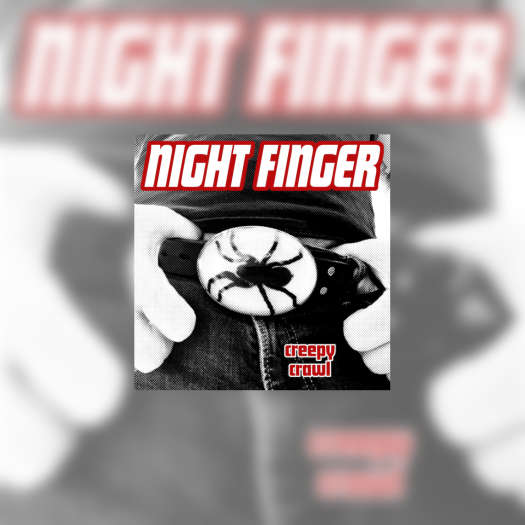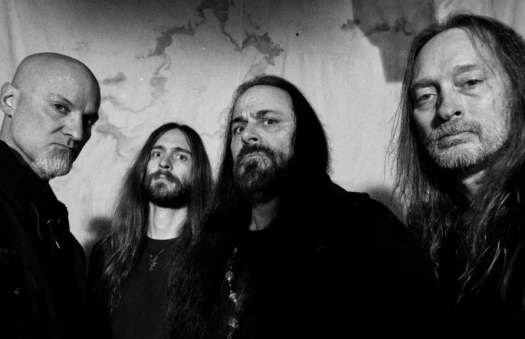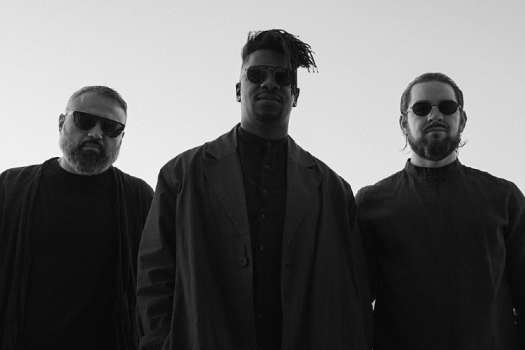It's a cliché, but in Agnes Obel's case it's true: the Danish songwriter's music takes a life of it own on stage.
On record, every note seems calculated and weighted to achieve maximum restraint, but once translated to a live setting, her compositions truly bloom with lively dynamics, as she demonstrated at the winter festival Montréal en lumière last night (February 28), the first show of her new tour.
Accompanied by four multi-instrumentalists — two of which were actually from Montreal — Obel took full advantage of Théâtre Maisonneuve's rich acoustics. After opening with a short instrumental waltz, she launched into "Dorian" and "Trojan Horses." Dominated by lush piano and cello arrangements, the pieces showcased the more classical side of her repertoire — though she'd soon deconstruct it.
With "Golden Green" and "It's Happening Again," Obel explored more modern arrangements. Playing with sequenced synths and violin loops, her band managed to create an angular atmosphere around her heartbreaking ballads. This first act of their performance culminated with "Familiar," a piece that stood somewhere between Owen Pallett's avant-pop and James Blake's minimal musings. The song's chorus in particular took the uninitiated by surprise, with its pitched-down vocals, run through a vocoder, adding dramatic weight to the piece and breaking with the instrumental monotony of some of her other songs.
Ending "Familiar" abruptly, Agnes Obel than switched to a second keyboard to play a stellar version of "Chords Left," the opening track from her 2013 album Aventine. Evoking Debussy's "Clair de lune" as much as it did Philip Glass's solo piano work, this marked the beginning of the second, more intimate part of the set, in which the singer and her band built eerie atmospheres with sparse and inventive arrangements.
Her musicians switched instruments constantly, from synthetic drum pads to autoharp to clarinet, but the instruments more prominently featured throughout the concert — aside from Obel's pianos — were two cellos used for a variety of effects throughout the show, from building textured loops to filling the room with resonating bass.
After a percussive rendition of "Run Cried the Crawling," Obel came back to her original piano to build up what would be the third and final act of her set. "Mary," taken from 2016's Citizen of Glass, found her constructing complex layers of synth and eerie harmonies. She followed that with a suite of songs expanding on the same dynamics, which ended with "Stretch Your Eyes," a song that marked the end of the evening with a powerful crescendo of swirling strings and hammered piano chords.
The sold-out audience, which had been intently listening throughout the performance, rose to their feet as soon as the song finished, bursting into applause.
On record, every note seems calculated and weighted to achieve maximum restraint, but once translated to a live setting, her compositions truly bloom with lively dynamics, as she demonstrated at the winter festival Montréal en lumière last night (February 28), the first show of her new tour.
Accompanied by four multi-instrumentalists — two of which were actually from Montreal — Obel took full advantage of Théâtre Maisonneuve's rich acoustics. After opening with a short instrumental waltz, she launched into "Dorian" and "Trojan Horses." Dominated by lush piano and cello arrangements, the pieces showcased the more classical side of her repertoire — though she'd soon deconstruct it.
With "Golden Green" and "It's Happening Again," Obel explored more modern arrangements. Playing with sequenced synths and violin loops, her band managed to create an angular atmosphere around her heartbreaking ballads. This first act of their performance culminated with "Familiar," a piece that stood somewhere between Owen Pallett's avant-pop and James Blake's minimal musings. The song's chorus in particular took the uninitiated by surprise, with its pitched-down vocals, run through a vocoder, adding dramatic weight to the piece and breaking with the instrumental monotony of some of her other songs.
Ending "Familiar" abruptly, Agnes Obel than switched to a second keyboard to play a stellar version of "Chords Left," the opening track from her 2013 album Aventine. Evoking Debussy's "Clair de lune" as much as it did Philip Glass's solo piano work, this marked the beginning of the second, more intimate part of the set, in which the singer and her band built eerie atmospheres with sparse and inventive arrangements.
Her musicians switched instruments constantly, from synthetic drum pads to autoharp to clarinet, but the instruments more prominently featured throughout the concert — aside from Obel's pianos — were two cellos used for a variety of effects throughout the show, from building textured loops to filling the room with resonating bass.
After a percussive rendition of "Run Cried the Crawling," Obel came back to her original piano to build up what would be the third and final act of her set. "Mary," taken from 2016's Citizen of Glass, found her constructing complex layers of synth and eerie harmonies. She followed that with a suite of songs expanding on the same dynamics, which ended with "Stretch Your Eyes," a song that marked the end of the evening with a powerful crescendo of swirling strings and hammered piano chords.
The sold-out audience, which had been intently listening throughout the performance, rose to their feet as soon as the song finished, bursting into applause.




